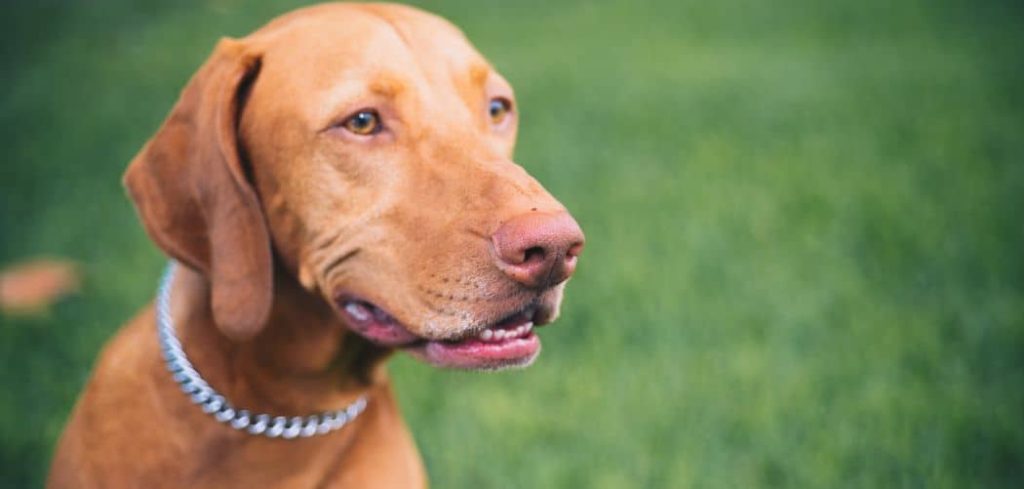Incontinence in older dogs can be a distressing issue for both pets and their owners. When an older dog begins to lose control of their bladder or bowels, it can indicate underlying medical conditions that need attention.
Recognizing the causes and knowing how to respond can make a significant difference in your dog’s comfort and quality of life.
We outline the common causes of old dog incontinence, what you can do at home, and when to seek veterinary help.
Old Dog Incontinence — Why It Happens
Incontinence in senior dogs can result from a variety of medical, neurological, and behavioral factors. Hormonal changes, weakened muscles, urinary tract infections, kidney or liver disease, and neurological disorders are all common contributors.
Certain medications or age-related cognitive decline can also lead to loss of bladder or bowel control.

Old Dog Incontinence: Common Causes
Urinary Tract Infection (UTI)
A urinary tract infection can irritate the bladder, causing an older dog to urinate involuntarily.
Symptoms may include frequent urination, straining, blood in the urine, or accidents in the house. UTIs can be painful and may escalate if left untreated, so prompt veterinary treatment with antibiotics is essential.
Read more: Old Dog Incontinence Poop (Causes and solutions)
Weakened Bladder Muscles
Age-related muscle weakening is a natural cause of incontinence in older dogs.
As dogs age, the muscles that control the bladder and urethra may lose tone, making it harder to retain urine. Owners may notice small leaks, dribbling during sleep, or accidents shortly after being let outside.
While not life-threatening, this condition requires management through lifestyle adjustments and veterinary advice.
Hormonal Imbalances
Hormonal changes, particularly in spayed female dogs, can cause incontinence.
A decline in estrogen or other hormone levels can affect the bladder’s ability to hold urine. Accidents may occur even when the dog has access to outdoor elimination areas. Your veterinarian can recommend hormone therapy or other treatments to reduce incontinence episodes.
Kidney or Liver Disease
Diseases affecting the kidneys or liver can result in increased urination and secondary incontinence.
When these organs fail to regulate toxins and fluids effectively, dogs may experience frequent urination, nighttime accidents, or involuntary leaking. Other signs include increased thirst, decreased appetite, lethargy, or vomiting. Addressing the underlying organ condition is critical for overall health and comfort.
Neurological Disorders
Neurological conditions, such as spinal cord disease or brain tumors, can impair bladder and bowel control.
Damage or interference with nerve signals can cause sudden or frequent incontinence. Owners may notice changes in gait, weakness, or unusual behaviors. Early diagnosis and treatment can help manage symptoms and prevent further complications.
Cognitive Dysfunction
Age-related cognitive decline, sometimes called “doggy dementia,” can contribute to incontinence.
Dogs may forget where to eliminate or lose the ability to hold urine due to confusion. Additional symptoms may include disorientation, changes in sleep patterns, and altered interaction with family members. Supportive care, routine, and veterinary guidance can help manage the effects of cognitive dysfunction.
What to Do
Ensure your dog has easy access to outdoor elimination areas and establish a consistent bathroom schedule.
Use washable or disposable pads indoors to manage accidents and maintain hygiene, reducing stress for both you and your dog.
Keep your dog clean and dry after accidents to prevent skin irritation or infection. Frequent baths or gentle wipes can help maintain comfort.
Discuss dietary adjustments with your veterinarian, as specialized diets may support bladder health and reduce accidents.
Maintain a calm, structured environment to help dogs with cognitive decline or behavioral causes of incontinence feel secure and reduce stress-related accidents.
When to Call or Visit Your Vet
Contact your veterinarian immediately if incontinence is sudden, severe, or accompanied by other concerning symptoms.
Seek urgent care if your dog shows signs of pain, blood in the urine, frequent vomiting, lethargy, or difficulty walking.
Any first-time episode in an older dog should be evaluated to rule out serious medical conditions such as infections, organ disease, or neurological disorders.
Early diagnosis and treatment not only improve quality of life but may also prevent secondary health complications related to chronic incontinence.
Read more: Old Dog Peeing Blood (Possible Causes and solutions)
Key Takeaway
Incontinence in older dogs can stem from urinary tract infections, weakened muscles, hormonal changes, organ disease, neurological issues, or cognitive decline.
Observing your dog carefully, maintaining hygiene, and providing consistent routines can help manage incontinence effectively.
Timely veterinary evaluation is essential to address underlying causes and provide appropriate treatment.
With proper care, lifestyle adjustments, and medical support, many older dogs can maintain comfort, dignity, and quality of life despite incontinence.
